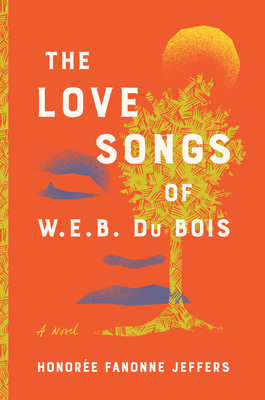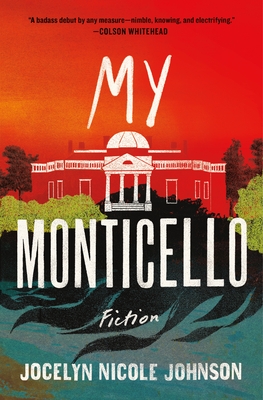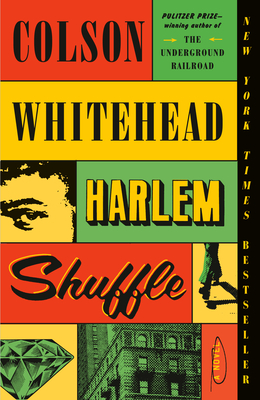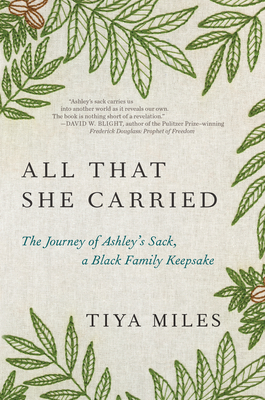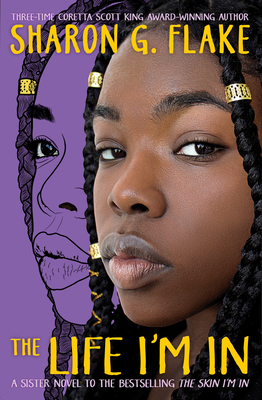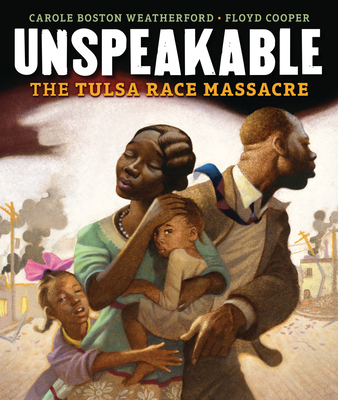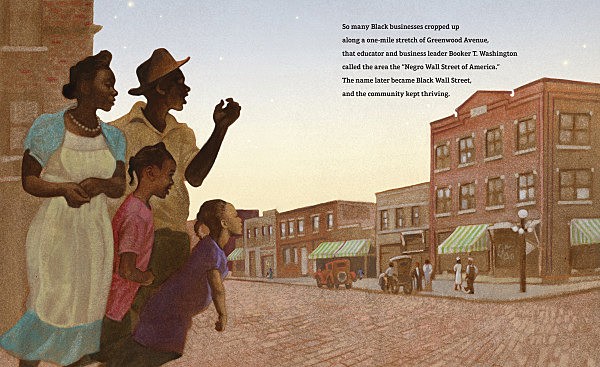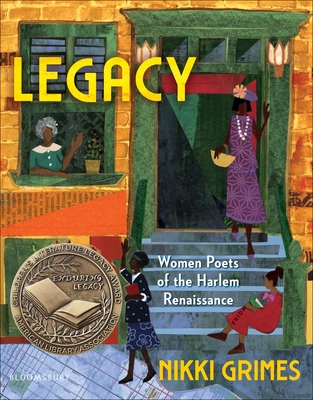Books Honored with The Kirkus Prize
← Back to Main Awards Page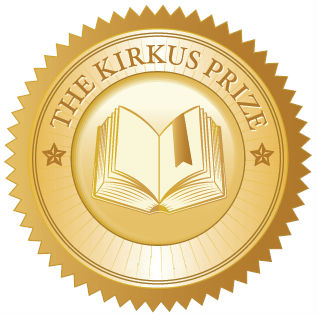
First awarded in 2014, The Kirkus Prize is one of the richest literary awards in the world, with a prize of $50,000 bestowed annually to authors of fiction, nonfiction, and young readers’ literature. It was created to celebrate the years of discerning, thoughtful criticism Kirkus Reviews has contributed to both the publishing industry and readers at large. Books that earn the Kirkus Star are automatically nominated for the Kirkus Prize. The Kirkus Prize judges select three winners each year in October. Below are books written by writers of African descent.
7 Books Honored with The Kirkus Prize in 2021
The Love Songs of W.E.B. Du Bois
- 4 Time AALBC.com Bestselling Book!
- Kirkus Prize Finalist/Winner 2021
- 2022 BCALA Literary Award
- National Book Award Honor 2021
I was so enraptured by the story of this modern Black family, and how author Honorée Fanonne Jeffers wove the larger fabric of historical trauma through the family s silence through generations Oprah Winfrey, Announcing The Love Songs of W.E.B. Du Bois as the Next Oprah s Book Club Selection
The Love Songs of W.E.B. Du Bois, the ambitious and uncompromising debut novel from National Book Award-nominated poet Honorée Fanonne Jeffers, takes readers into the intimate lives of Black and Indigenous women who have fought racism and sexism to weave their experiences into America s larger tapestry. Fashioning a microcosm of our fraught national history, Jeffers crafts a complex narrative of forced accommodation, courageous resistance, and resilience, as she deftly chronicles the journey of one American family through centuries from the white appropriation of native lands to the African slave trade, from the Civil War to the Civil Rights Movement and beyond. Jeffers frames her wholly original narrative with Sorrow Songs a term borrowed from W.E.B. Dubois: ancestral memories that unfold as beautifully-rendered, almost mythic tales.
The novel centers on Ailey Pearl Garfield as she pushes against the expectations of her African American middle-class upbringing. On the path to fulfilling her family s wish for her to become a doctor, Ailey attends an historically Black college in Georgia, not far from the rural homestead where her ancestors were once enslaved. Ailey straddles the present and the past as she reconnects with this side of her heritage, whose traditions clash with those of her imperious, light-skinned paternal grandmother, to whom skin tone is paramount. As Ailey struggles to learn who she is and what she wants, she must reckon with the complicated racial history that has shaped her family, uncovering buried truths about her ancestors both invigorating and difficult.
In creating this world, Jeffers has drawn on stories from her own family. Remembering childhood summers spent in Georgia with her grandmother, she recalls, I wasn t a child who played well with others. I preferred to sit still in corners and eavesdrop on elder relatives. I first learned of slavery and lynching, and the difficult history of this country not from books, but from eavesdropping on old, Black folks. After I became a creative writing major, I kept returning to the ancestral land of my mother and grandmother, and I began writing about a southern, Black family that had survived the horrors of historical racism and white supremacy.
My Monticello: Fiction
- 4 Time AALBC.com Bestselling Book!
- Kirkus Prize Finalist/Winner 2021
- 2022 BCALA Literary Award
- National Book Award Honor 2021
A young woman descended from Thomas Jefferson and Sally Hemings driven from her neighborhood by a white militia. A university professor studying racism by conducting a secret social experiment on his own son. A single mother desperate to buy her first home even as the world hurtles toward catastrophe. Each fighting to survive in America.
Tough-minded, vulnerable, and brave, Jocelyn Nicole Johnson s precisely imagined debut explores burdened inheritances and extraordinary pursuits of belonging. Set in the near future, the eponymous novella, My Monticello, tells of a diverse group of Charlottesville neighbors fleeing violent white supremacists. Led by Da Naisha, a young Black descendant of Thomas Jefferson and Sally Hemings, they seek refuge in Jefferson s historic plantation home in a desperate attempt to outlive the long-foretold racial and environmental unravelling within the nation.
In Control Negro, hailed by Roxane Gay as one hell of story, a university professor devotes himself to the study of racism and the development of ACMs (average American Caucasian males) by clinically observing his own son from birth in order to painstakingly mark the route of this Black child too, one whom I could prove was so strikingly decent and true that America could not find fault in him unless we as a nation had projected it there. Johnson s characters all seek out home as a place and an internal state, whether in the form of a Nigerian widower who immigrates to a meager existence in the city of Alexandria, finding himself adrift; a young mixed-race woman who adopts a new tongue and name to escape the landscapes of rural Virginia and her family; or a single mother who seeks salvation through Buying a House Ahead of the Apocalypse.
United by these characters relentless struggles against reality and fate, My Monticello is a formidable book that bears witness to this country s legacies and announces the arrival of a wildly original new voice in American fiction.
Harlem Shuffle
- 4 Time AALBC.com Bestselling Book!
- Kirkus Prize Finalist/Winner 2021
- 2022 BCALA Literary Award
- National Book Award Honor 2021
New York Times Bestseller
From the two-time Pulitzer Prize-winning author of The Underground Railroad and The Nickel Boys, this gloriously entertaining novel is fast-paced, keen-eyed and very funny about race, power and the history of Harlem all disguised as a thrill-ride crime novel (San Francisco Chronicle).
"Ray Carney was only slightly bent when it came to being crooked " To his customers and neighbors on 125th street, Carney is an upstanding salesman of reasonably priced furniture, making a decent life for himself and his family. He and his wife Elizabeth are expecting their second child, and if her parents on Striver s Row don t approve of him or their cramped apartment across from the subway tracks, it s still home.
Few people know he descends from a line of uptown hoods and crooks, and that his façade of normalcy has more than a few cracks in it. Cracks that are getting bigger all the time.
Cash is tight, especially with all those installment-plan sofas, so if his cousin Freddie occasionally drops off the odd ring or necklace, Ray doesn t ask where it comes from. He knows a discreet jeweler downtown who doesn t ask questions, either.
Then Freddie falls in with a crew who plan to rob the Hotel Theresa the "Waldorf of Harlem" and volunteers Ray s services as the fence. The heist doesn t go as planned; they rarely do. Now Ray has a new clientele, one made up of shady cops, vicious local gangsters, two-bit pornographers, and other assorted Harlem lowlifes.
Thus begins the internal tussle between Ray the striver and Ray the crook. As Ray navigates this double life, he begins to see who actually pulls the strings in Harlem. Can Ray avoid getting killed, save his cousin, and grab his share of the big score, all while maintaining his reputation as the go-to source for all your quality home furniture needs?
Harlem Shuffle s ingenious story plays out in a beautifully recreated New York City of the early 1960s. It s a family saga masquerading as a crime novel, a hilarious morality play, a social novel about race and power, and ultimately a love letter to Harlem.
But mostly, it s a joy to read, another dazzling novel from the Pulitzer Prize and National Book Award-winning Colson Whitehead.
All That She Carried: The Journey of Ashley’s Sack, a Black Family Keepsake
by Tiya Miles
- 4 Time AALBC.com Bestselling Book!
- Kirkus Prize Finalist/Winner 2021
- 2022 BCALA Literary Award
- National Book Award Honor 2021
A renowned historian traces the life of a single object handed down through three generations of Black women to craft an extraordinary testament to people who are left out of the archives.
In 1850s South Carolina, an enslaved woman named Rose faced a crisis, the imminent sale of her daughter Ashley. Thinking quickly, she packed a cotton bag with a few precious items as a token of love and to try to ensure Ashley s survival. Soon after, the nine-year-old girl was separated from her mother and sold.
Decades later, Ashley s granddaughter Ruth embroidered this family history on the bag in spare yet haunting language including Rose s wish that It be filled with my Love always. Ruth s sewn words, the reason we remember Ashley s sack today, evoke a sweeping family story of loss and of love passed down through generations. Now, in this illuminating, deeply moving new book inspired by Rose s gift to Ashley, historian Tiya Miles carefully unearths these women s faint presence in archival records to follow the paths of their lives and the lives of so many women like them to write a singular and revelatory history of the experience of slavery, and the uncertain freedom afterward, in the United States.
The search to uncover this history is part of the story itself. For where the historical record falls short of capturing Rose s, Ashley s, and Ruth s full lives, Miles turns to objects and to art as equally important sources, assembling a chorus of women s and families stories and critiquing the scant archives that for decades have overlooked so many. The contents of Ashley s sack a tattered dress, handfuls of pecans, a braid of hair, my Love always are eloquent evidence of the lives these women lived. As she follows Ashley s journey, Miles metaphorically unpacks the bag, deepening its emotional resonance and exploring the meanings and significance of everything it contained.
All That She Carried is a poignant story of resilience and of love passed down through generations of women against steep odds. It honors the creativity and fierce resourcefulness of people who preserved family ties even when official systems refused to do so, and it serves as a visionary illustration of how to reconstruct and recount their stories today.
The Life I’m In
- 4 Time AALBC.com Bestselling Book!
- Kirkus Prize Finalist/Winner 2021
- 2022 BCALA Literary Award
- National Book Award Honor 2021
The powerful and long-anticipated companion to The Skin I m In, Sharon Flake s bestselling modern classic, presents the unflinching story of Char, a young woman trapped in the underworld of human trafficking.
My feet are heavy as stones when I walk up the block wondering why I can t find my old self.
Unspeakable: The Tulsa Race Massacre
by Carole Boston Weatherford, Illustrated by Floyd Cooper
- 4 Time AALBC.com Bestselling Book!
- Kirkus Prize Finalist/Winner 2021
- 2022 BCALA Literary Award
- National Book Award Honor 2021
Celebrated author Carole Boston Weatherford and illustrator Floyd Cooper provide a powerful look at the 1921 Tulsa race massacre, one of the worst incidents of racial violence in our nation s history.
Celebrated author Carole Boston Weatherford and illustrator Floyd Cooper provide a powerful look at the Tulsa Race Massacre, one of the worst incidents of racial violence in our nation s history. The book traces the history of African Americans in Tulsa s Greenwood district and chronicles the devastation that occurred in 1921 when a white mob attacked the Black community.
News of what happened was largely suppressed, and no official investigation occurred for seventy-five years. This picture book sensitively introduces young readers to this tragedy and concludes with a call for a better future.
Legacy: Women Poets of the Harlem Renaissance
by Nikki Grimes
- 4 Time AALBC.com Bestselling Book!
- Kirkus Prize Finalist/Winner 2021
- 2022 BCALA Literary Award
- National Book Award Honor 2021
From Children s Literature Legacy Award-winning author Nikki Grimes comes a feminist-forward new collection of poetry celebrating the little-known women poets of the Harlem Renaissance paired with full-color, original art from today s most talented female African-American illustrators.
For centuries, accomplished women of all races have fallen out of the historical records. The same is true for gifted, prolific, women poets of the Harlem Renaissance who are little known, especially as compared to their male counterparts. In this poetry collection, bestselling author Nikki Grimes uses The Golden Shovel poetic method to create wholly original poems based on the works of these groundbreaking women-and to introduce readers to their work. Each poem is paired with one-of-a-kind art from today s most exciting female African-American illustrators, including: Vanessa Brantley-Newton, Cozbi Cabrera, Pat Cummings, Nina Crews, Laura Freeman, Jan Spivey Gilchrist, Ebony Glenn, April Harrison, Ekua Holmes, Keisha Morrison, Daria Peoples-Riley, Andrea Pippins, Shadra Strickland, and Elizabeth Zunon. Legacy also includes a foreword, an introduction to the history of the Harlem Renaissance, author s note, and poet biographies, which make this a wonderful resource and a book to cherish. Acclaim for One Last WordA Boston Globe-Horn Book Honor winner
A New York Public Library Best Kids Book of the Year
A Kirkus Reviews Best Book of the Year, Middle Grade
A School Library Journal Best Book of the Year, Nonfiction

